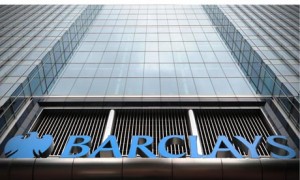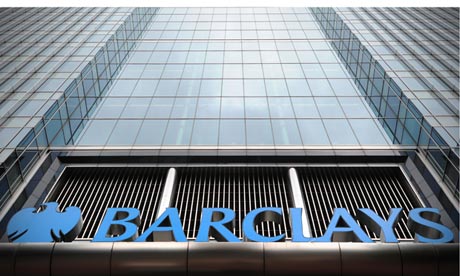
(AFP Photo)
Egypt’s high consumer interest rates have prompted a number of international and Gulf banks to tap the country’s banking sector for long-term investments, overlooking the incumbent weakened economy.
In April, the United Kingdom’s second-biggest bank by assets, Barclays, announced its plan to increase its presence in Egypt by boosting the number of its branches by 10%.
“The fact that there’s a general trend of expansion happening is a positive step for the banking sector in Egypt,” said Hesham Shawqi, head of the investment sector at Arab Investment Bank in Cairo.
“Banks, especially from the Gulf, are looking for hidden opportunities; one of them is the high interest rates and Egypt’s growing population,” Shawqi explained. Egypt is the Middle East and North Africa’s most populous nation, with a population of about 83 million.
He explained that Egypt’s population includes a sizeable middle class and significant youth segment which “will also likely contribute to the banks’ growth.”
Shawqi further said that foreign investors might find it “risky to invest elsewhere in Egypt, so it is safer for them to purchase and invest in banks.”
In December, Emirates National Bank of Dubai (NBD) agreed to buy a 95.2% stake in BNP Paribas’ Egyptian arm from the French bank in a deal worth $500m.
In the same month, meanwhile, Qatar National Bank (QNB) agreed to purchase French lender Société Général’s 77% stake in Egypt’s National Société Générale Bank (NSGB) in a deal worth $1.97bn.
Later in February, the Egyptian Financial Supervisory Authority (EFSA) approved the offer presented by QNB to buy 100% of NSGB.
Shawqi stated that banks like QNB “normally consider growth opportunities and portfolio diversification when thinking of expanding into a certain country.”
He said that since NSGB, the second largest publicly traded bank in the country, is a highly rated bank in Egypt, QNB was encouraged to purchase it.
As of 30 June 2012, NSGB’s total assets had reached $10.5bn, with Société Générale’s stake valued at around $1.77bn (EGP 10.8bn).
Following the QNB and NBD deals, HSBC announced its decision to expand its consumer lending and wealth management business in Egypt.
Despite the bank purchases that are taking place, Moody’s credit rating agency downgraded Egypt for the sixth time since the beginning of the revolution to Caa1 last March, the fifth-lowest level, and deep in junk status. The agency also downgraded the local currency deposits including three state-owned institutions; National Bank of Egypt, Banque Misr and Banque du Caire. Moody’s cited “the state’s reduced ability to support the banks and the downgrade of Egypt’s foreign currency deposit ceiling.’’



